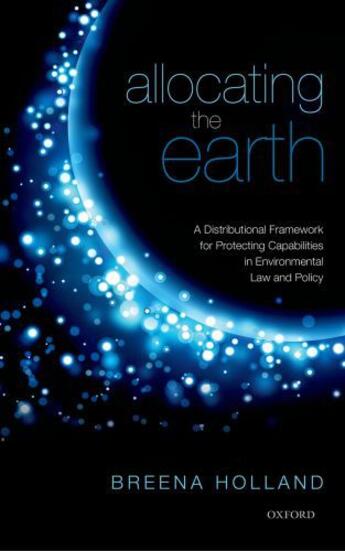-
Nombre de pages : (-)
-
Collection :
(-)
-
Genre :
(-)
-
Thème :
Non attribué
-
Prix littéraire(s) :
(-)
Résumé:
This book advances a new distributional framework to guide the evaluation and design of environmental policies. Drawing on capabilities theory, especially as articulated in Martha Nussbaum's capabilities approach to justice, the book proposes that environmental policies should aim to secure the... Voir plus
This book advances a new distributional framework to guide the evaluation and design of environmental policies. Drawing on capabilities theory, especially as articulated in Martha Nussbaum's capabilities approach to justice, the book proposes that environmental policies should aim to secure the basic capabilities that make it possible for people to live a flourishing and dignified human life. Holland begins by establishing protection of the natural environment as central to securing these capabilities and then considers the implications for debates in environmental valuation, policy justification, and administrative rulemaking. In each of these areas, she demonstrates how a 'capabilities approach to social and environmental justice' can minimize substantive and procedural inequities that result from how we evaluate and design environmental policies in contemporary society.
Holland's proposals include valuing environmental goods and services as comparable - but not commensurable - across the same dimension of well-being of different people, justifying environmental policies with respect to both the capability thresholds they secure and the capability ceilings they establish, and subjecting the outcomes of participatory decisions in the administrative rulemaking process to stronger substantive standards. In developing and applying this unique approach to justice, Holland primarily focuses on questions of domestic environmental policy. In the closing chapter she turns to theoretical debates about international climate policy and sketches how her approach to justice could inform both the philosophical grounding and practical application of efforts to achieve global climate justice. Engaging current debates in environmental policy and political theory, the book is a sustained exercise of both applied and environmental political theory.
Donner votre avis














